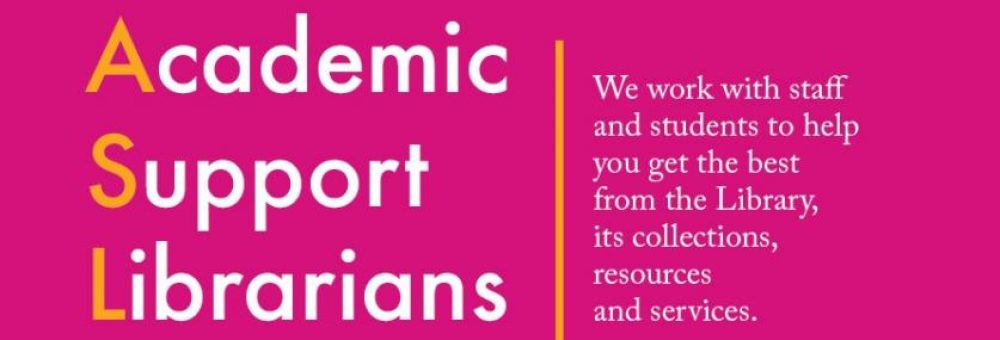
Ruth Jenkins, SarahLouise McDonald and Christine Love-Rodgers at LILAC 2022
The LILAC 2022 conference in Manchester this April was a challenge and a pleasure to attend : my first real life, in person conference for two years! I put aside my laptop with the distraction of its constant stream of email to concentrate on being present in the conference and using my LILAC notebook and pen.
Alongside my colleagues, I was there to present papers about the projects we’d delivered in the COVID years, including LibSmart, our online information literacy course. We’ve developed LibSmart I to develop student information literacy skills to support student transition into the first years of an undergraduate course, and LibSmart II to support student transition into Honours and PG dissertation research. We had lots of great questions about the courses, and interest from Uppsala and Gothenberg Universities in Sweden who are keen to develop similar projects.
Student transitions in information literacy was a key theme of the conference. I attended a session by Paul Newnham on Information literacy and the transition to university education : Reflections and initial findings from Lancaster University. This research study aimed to understand student needs for information literacy and how the Library can support students with information literacy and critical thinking skills. Using qualitative data from groups in Blackpool Sixth Form College and Lancaster University, the study found that both lecturers and teachers thought that students’ ability to find information had deteriorated over the last 10-15 years. However there was wide understanding of the importance of referencing and plagiarism.

Manchester Metropolitan University
One issue was the study participants’ recognition of information literacy as a concept or set of competencies. Information literacy skills tended to be noticed by teachers and lecturers as a deficit, for instance when search or evaluation skills were slow to develop. Rather than talking about information literacy in terms of competencies or library skills, study participants referred to broader terms such as research skills or ‘doing research’ (also supported by Stebbing, D., Shelley, J (2019)).
The research found plenty of evidence that teachers and lecturers were teaching information literacy explicitly and implicitly. Academic staff saw information literacy development as a task-orientated activity in the context of their disciplines. At the sixth-form college, information literacy skills were recognised by students who had undertaken the A-Level Extended Project Qualification (EPQ). Students related the idea of critical thinking to the idea of becoming an independent researcher.
Reflecting on this session, I was struck by the finding that lecturers and teachers thought that students’ ability to find information had deteriorated. This is a need that we should be supporting with courses like LibSmart. I would like to spend more time exploring how academic staff are teaching information literacy skills in the context of their disciplines and how librarians can support this further. I was also reminded of the importance of language: information literacy is a key term for how librarians describe what they do but can be less meaningful to academic staff and even less so for students.

Manchester Metropolitan University campus
Jane Secker and Elizabeth Tilley presented on Students’ academic reading in a time of COVID, looking at a large scale international research data study on student attitudes to academic readings. This found that students prefer e-books for chapters but print books for all other situations. While some students still refuse to read e-books entirely, many students are expecting to keep using e-books as a core route to course readings. During the COVID period, many libraries moved to digital first policies, but what has the impact of this on students been and what are we telling students about digital first library provision?
Findings from the research study suggest that e-books lend themselves to quick but uncritical reading. Students look for short, easily accessible readings online to grab the essentials for their taught courses. For more reflective reading and for independent research, they continue to value print copies. E-texts and e-reading lists have moved the transition point when students need to fully understand how to use a library to when they first start doing independent research, not when they start university.
I reflected that e-books now have a key part to pay in students’ transition to become independent researchers. Are we giving knowledge of using e-books to their fullest potential enough prominence in the teaching we deliver? Could we develop new material or sessions about using e-books for students, and for the tutors and lecturers who support them?
Christine Love-Rodgers, Academic Support Librarian

Pingback: LILAC 2022: Power structures in library and information services | Academic Support Librarians
Pingback: LILAC 2022: Being Better Teachers | Academic Support Librarians